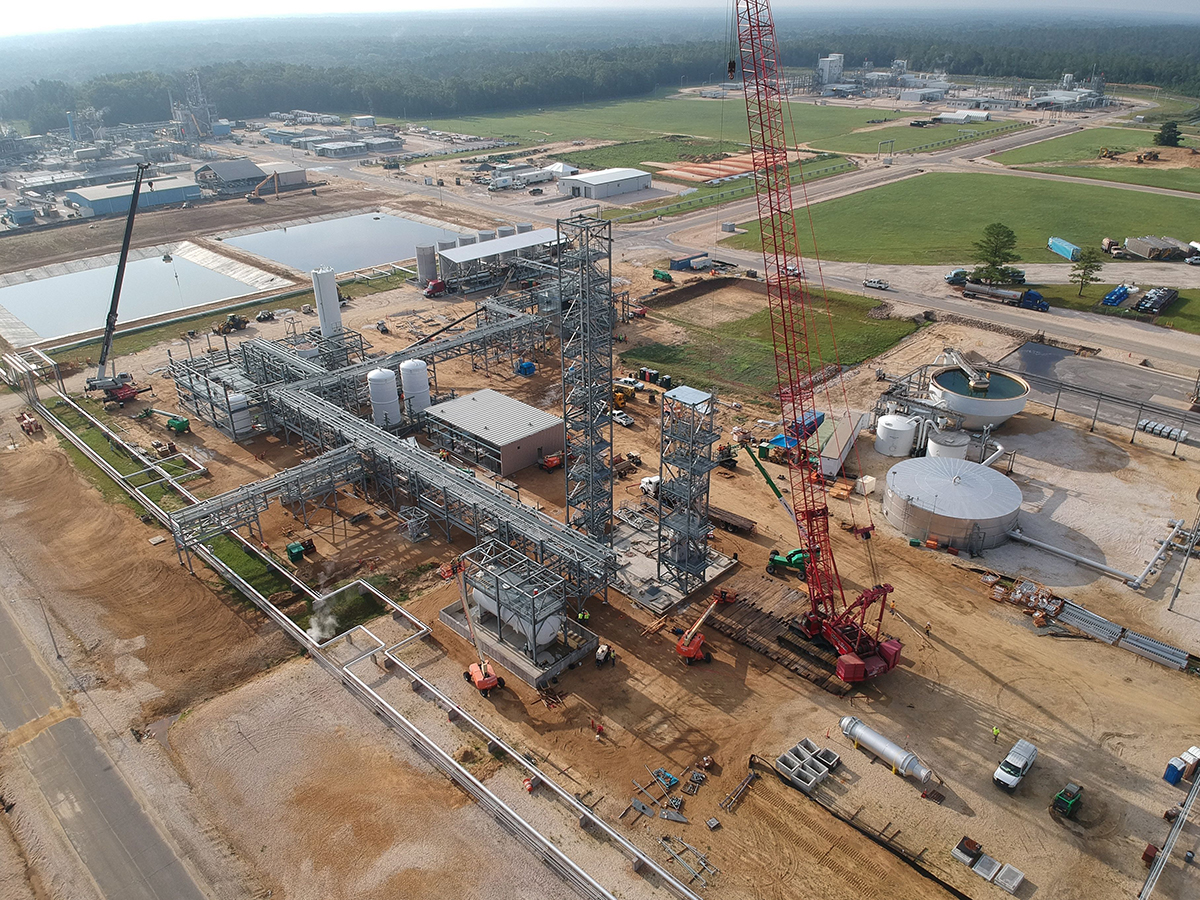
Chemours’ air permit application to expand production at its Fayetteville Works plant excludes emissions data that should be disclosed to the public, environmental lawyers say.
The company “improperly withheld vital emission data from the public” in its Aug. 14 application to the North Carolina Department of Environmental Quality’s Division of Air Quality, according to a letter Southern Environmental Law Center attorneys sent the department last month.
Supporter Spotlight
“We urge the Department to require Chemours to re-submit its application with disclosed emissions data,” the Sept. 19 letter states. “North Carolina law clearly states that emission data cannot be kept secret.”
Jess Loizeaux, Chemours’ communications leader, refuted that claim, writing in an email responding to a request for comment, “our permit application fully disclosed the projected emissions associated with the expansion.”
“Certain details included in the application submitted to DAQ – such as production capacity, operating hours, and emissions factors – were redacted from the public version because they are considered confidential business information and, if made public, could harm our competitive position,” Loizeaux said. “Protecting confidential business information is standard practice and does not affect transparency regarding environmental impacts.”
Attorneys for Chemours and its predecessor company DuPont made a similar argument earlier this year when they filed a court motion to keep under seal thousands of pages of documents they say include “non-public facts” that largely pertain to chemical production.
Lawyers representing public utilities and local governments downstream of Chemours’ Bladen County plant submitted 25,000 pages of documents to the U.S. District Court for the Eastern District of North Carolina as part of lawsuit those entities brought against the companies in October 2017.
Supporter Spotlight
Cape Fear Public Utility Authority, Brunswick County, Lower Cape Fear Water & Sewer Authority, and Wrightsville Beach aim to recover costs and damages associated with the Fayetteville Works’ plant’s discharges of per- and polyfluoroalkyl substances, or PFAS, for decades into the Cape Fear River. The river is a drinking water source for tens of thousands of residents in the region.
The court had not rendered a decision on Chemours’ request as of this story’s publication.
In 2020, Chemours submitted an application to renew its Title V permit, which applies to major source of air emissions, for its Fayetteville Works plant to the state Division of Air Quality.
Two years later, the company applied for a separate permit to expand its production of vinyl ethers and IXM.
Chemours revised and resubmitted that permit application to expand only its production of vinyl ethers last August. Vinyl ethers are a class of compounds used to create a variety of products used in a range of technologies from semiconductor chips to aviation components.
Vinyl ethers are used to create a wide variety of products, including polymers for adhesives, coatings, and plastics
The expansion would pertain to the plant’s two existing vinyl ethers production units, Loizeaux said.
“As outlined in the revised permit application, additional abatement technology will be installed alongside each expansion and is projected to decrease the site’s overall fluorinated emissions by approximately 15%, despite an increase in production,” she said. “A timeline for the expansions has not yet been set.”
Southern Environmental Law Center attorneys argue in their Sept. 19 letter to DEQ that Chemours is violating provisions within the state law that outlines protection and disclosure rules for confidential information.
The application, “blacks out emission rates from stack testing, uncontrolled emission factors, hours of operation, maximum hours of operation, historic production, and post-modification production capacity. The information is necessary to verify and fully understand the emissions and authorized emissions at the facility and cannot be withheld from the public,” according to the letter.
The letter goes on to state that Chemours previously disclosed similar information in previous submissions to DEQ.
“Chemours’ about-face from its past submissions further confirms that this information cannot be treated as confidential,” the letter states.
Last April, the SELC, on behalf of Cape Fear River Watch, asked DEQ to deny Chemours’ request to expand production at its Bladen County plant, arguing that the company’s air permit application was riddled with flaws.
As part of 2019 consent order with DEQ and Cape Fear River Watch, Chemours installed a thermal oxidizer to capture and destroy PFAS from emitting into the air. The order also requires the company to test tens of thousands of private drinking water wells for PFAS contamination throughout the region.
In a 20-page letter to DEQ, SELC attorneys argue Chemours questioned the efficacy of thermal destruction technology on PFAS.
“Investigating Chemours’ thermal oxidizer specifically, [the U.S. Environmental Protection Agency] determined that, due to a lack of data, ‘removal processes for products of incomplete combustion or of destruction of potential compounds not studied … are still unclear.’ In other words, it is possible that the company’s thermal oxidizer does not fully destroy many PFAS. Some may break down into other harmful chemicals, and others may not be destroyed at all,” the letter states.
DEQ Interim Deputy Communications Director Shawn Taylor said in an email earlier this month that while air quality officials deem the latest version of Chemours’ application administratively complete, “the Division may require additional information from the applicant to conduct its technical review.”
“The Division plans to schedule a full public engagement process, including a public comment period and public hearings, to be announced at a later date,” he said.







